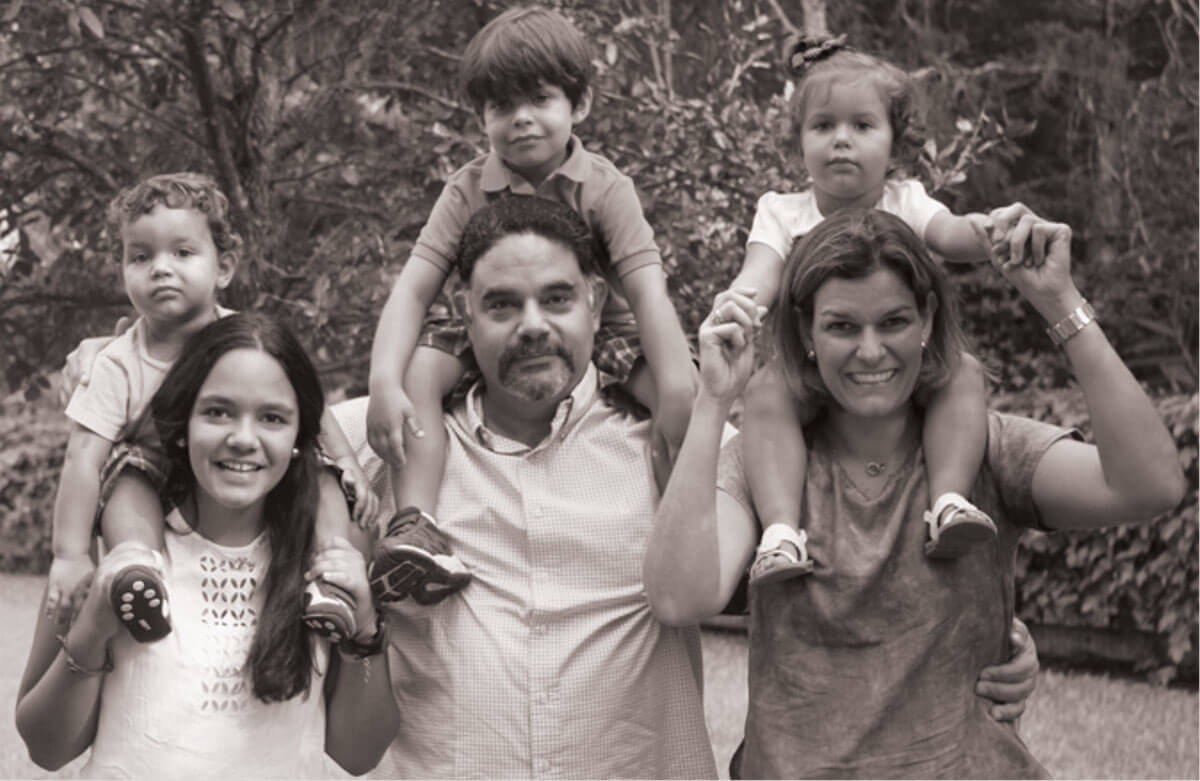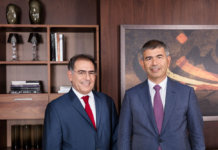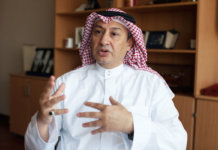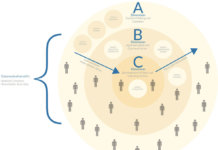Interview with Nelson D. Dao, President of the Board of Supervisory Directors at Bancaribe Curacao Bank
In 1926, N.D. Dao travelled from Lebanon to Venezuela to visit his family, especially his older sister Blanca. Upon arrival, Dao fell ill and had to stay in Venezuela for six months. As soon as he recovered, he began working as a truck driver in the seaport of Puerto Cabello. It was there in 1935 that Dao founded his first business, a customs brokerage firm, N.D. Dao, C.A., that attended the ships that docked at the port. While tending to his business he realised that he had to travel at least eight hours by car to Caracas in order to solicit specialised financial service or just a simple credit. So in 1954 he founded a regional financial institution offering financial products and services to customers unable to access those banks in the capital. Today, the Dao family still are controlling shareholders in three banks operating in Venezuela and Curazao.
Tharawat sat down with third generation member, Nelson D. Dao, who, taking after his grandfather, dedicated his studies and career to banking and finance. Today, he is the President of the Board of Supervisory Directors at Bancaribe Curacao Bank. We discussed family heritage, what it is like to be a family in finance and banking in Latin America.
When did you start working in the family business?
I started studying at the Universidad Metropolitana in Venezuela in September 1985. Early the next year, I began my first job as an office teller in one of our bank branches. The only privilege I had was that I could choose a branch close to my university. Today I serve as President of the Board of Supervisory Directors at Bancaribe Curacao Bank, N.V. Bancaribe Curazao Bank was founded in May 1977 and is currently operating under an international license in the country of Curazao. This is one of the three banks that we, the Dao family, are controlling shareholders in. It is the only bank outside of Venezuela.
What gets you excited about work?
I definitely like the banking business. I enjoy traveling throughout the region and the bank’s influential areas in search of profitable, safe and productive opportunities. I like interacting with people to understand their needs and to find the financial products and services that meet them. Another aspect I find fulfilling is comprehensive risk management whether credit, market and/or operational. A healthy bank begins with the principle that risks taken must be controlled and measured. Since banks manage client money, not their own, the responsibility of measuring and taking risks is important.
Who inspires you?
Definitely my grandfather, N.D. Dao, the founder of this group of companies. My grandfather was an example of hard work, willingness, commitment and business ethics. After immigrating to Venezuela from Lebanon in 1926, he began working as a truck driver at the Puerto Cabello docks. With great effort, dedication and ability, he founded this group of companies beginning with a customs brokerage firm in 1935, and Banco del Caribe in 1954.
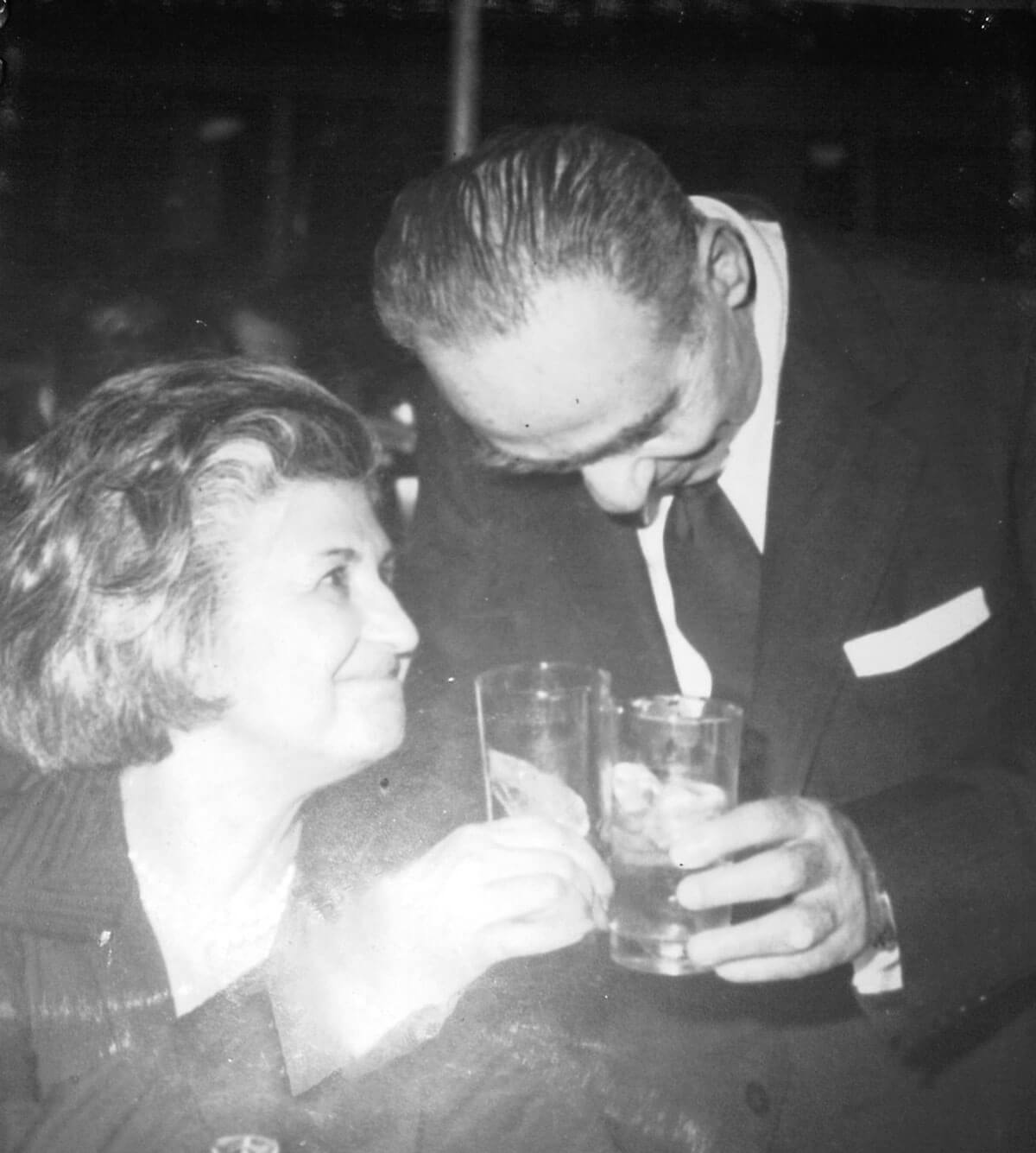
How many family members are currently working in the business?
We are three at the moment. The Chief Executive Officer of Banco del Caribe, C.A. in Venezuela is Juan Carlos Dao, a family member not within the controlling shareholders branch. Eldest son of the founder, Edgar Alberto Dao, who is the leader of the family and is a member of the Board of Directors of Banco del Caribe, C.A. in Venezuela. Then there is me, Nelson David Dao, nephew of the latter and President of the Board of Supervisory Directors at Bancaribe Curacao Bank, N.V. I am also based in Venezuela.
What are your responsibilities as President and as a family member?
As President of the Board of Supervisory Directors, my responsibilities are overseeing the administration of the Bank, approving business plans and policies, supervising and assisting in the development of daily business and ensuring that operations are framed within the laws, to name just a few. I also help organise the family. For example, I plan all family gatherings where we discuss issues related to business, recreational activities and entertainment. Additionally, since November 2011, I am a member of the Board of Directors of the Universidad Metropolitana in Caracas.
What are the particular advantages and challenges of running a bank as a family business?
I think an advantage is the confidence generated by a family name backing a financial institution. Trust is the main source of safety and confidence in any financial business. In Venezuela our name is associated with banks and banks only. Unlike other families that have incorporated banks within their portfolio of companies, our family name is associated with financial and banking knowledge, which helps generate business.
The main challenges are always maintaining a healthy, profitable and well capitalized financial institution. Making sure the bank is technologically up-to-date and offerings of products and services that meet current needs is yet another challenge. This can only be achieved by increasing reinvestment of capital, which poses an interesting situation for a family business. In Venezuela, many difficulties relate to the incompatibility of a family-run financial business and the current political regime.
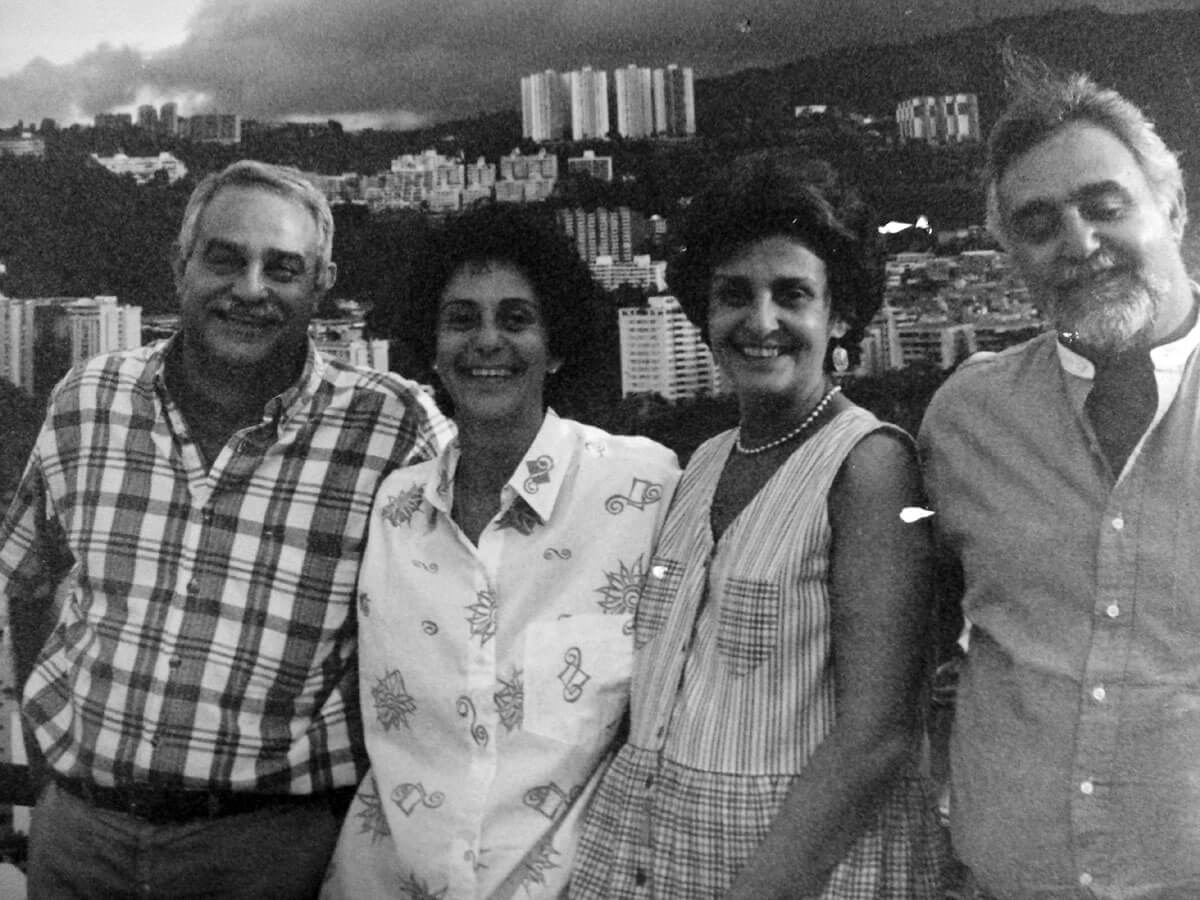
How has your family gone about expanding?
Expansions can be answered from three angles. The first is the bank’s expansion within Venezuela. The bank currently covers the entire country, with offices in all major cities.
The second aspect covers international expansion. Besides the bank in Curacao, attempts at international expansions have been very modest and very few. In the late 1970s we tried to buy a financial institution in Dominican Republic without any success.
The third would be expansions within the Venezuelan financial sector. At some point a complete financial group, Grupo Financiero Bancaribe, was created in Venezuela. It included a commercial bank, a microfinance bank, an investment bank, an office in the financial markets, an armoured car services company and two insurance companies. Unfortunately in 2011, the government of Venezuela enacted a law whereby the formations of financial groups were prohibited. The family therefore decided to maintain control of the banks only. Everything else was sold.
The availability of capital for international expansion is one obstacle. Another is the legal situation in Venezuela, with the growing number of prohibitions that have been imposed on financial institutions.
[ms-protect-content id=”4069,4129″]
What system of governance is in place for the family?
We do not have a system of family governance. We are still a small family with holdings in the hands of four members of the second generation. There is basically a family leader that proposes a meeting, they get together and address any issues or decisions regarding the companies whenever needed. Now that there are nine members in the third generation and twelve in the fourth, we are starting to organise ourselves around the businesses. The ownership is structured through companies and trusts whose ultimate beneficiaries are the Dao siblings.
Each bank has a strong corporate governance system installed. All depends on having a powerful Board of Directors comprised of independent and broad-minded individuals that can hold the administration accountable for its actions and results. Each bank also has an Executive Committee that oversees the major administrative decisions of day-to-day operations and business. Everything is properly written down in the incorporation statutes and bylaws that are designed for the proper operation of the financial business and everything is supported by a group of banking professionals hired for this purpose.
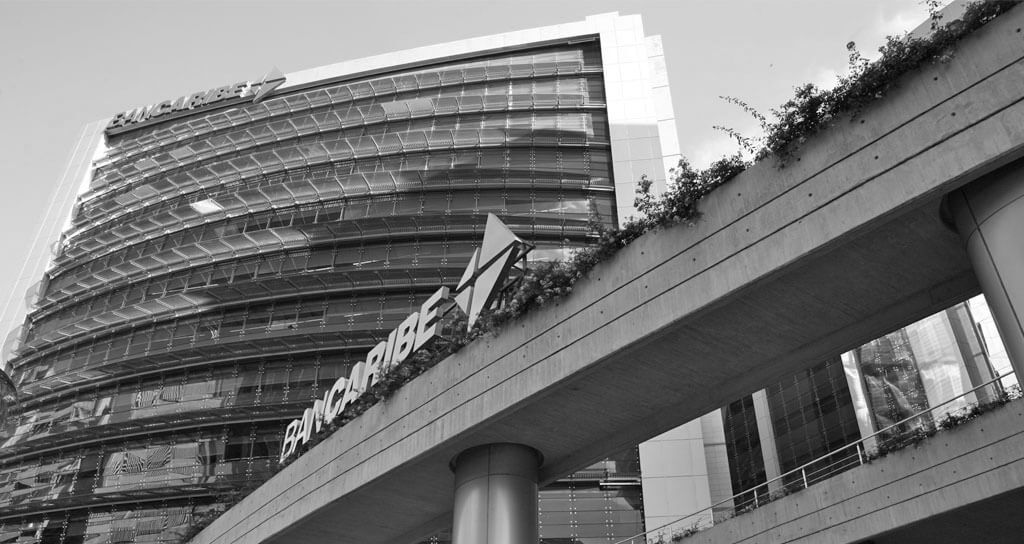
Do you see many professional governance structures in Latin America?
Corporate governance systems are definitely becoming more robust. I think that bankers have realised that one of the keys to success for any business, especially if it is family owned, is to have a strong corporate governance system composed of independent professionals.
What are the financial challenges of family businesses in Latin America?
There are many, but I would say that the main challenge is access to fresh capital for investments. Being a business owner nowadays requires that the offered products and services are updated and able to compete in a global and increasingly interconnected market. This requires the continuous deployment of capital to invest in new technologies, machinery, R&D and so on.
In Latin America, it has been traditionally difficult to access developed financial markets to provide adequate financial solutions for businesses and corporations. Family businesses of course, do not escape this problem. Fortunately, Latin American financial institutions are becoming more modern and are beginning to offer these options.
Another major challenge is keeping family businesses competitive despite the economic volatility that has swept the region in recent decades, for example amazing fluctuations in exchange rates and economic expansions and contractions depending on the type of government in power.
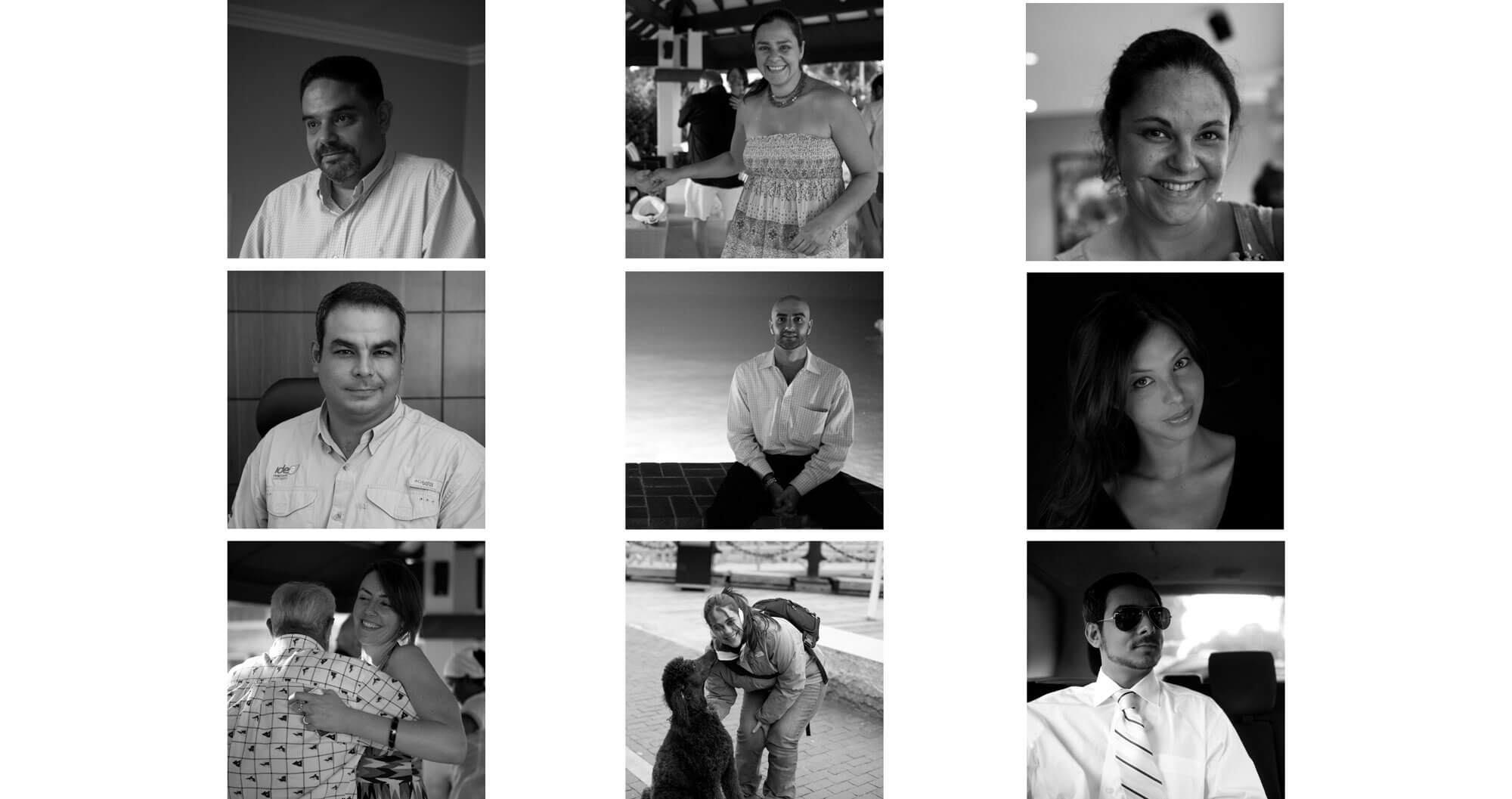
How has the financial industry evolved in Latin America?
It has definitely evolved, and for the better. The banking sector in Latin America is now larger, more powerful and better capitalized, offering cutting-edge products and services up to the standards of any global financial institutions. Latin American banks have majorly expanded regionally, occupying spaces that previously belonged to global banks. It is also fair to say that banking supervision in most countries has become more professional, technical and dynamic. I am convinced that you cannot do good banking without a professional, and up-to-date regulator.
With respect to these changes, I see nothing drastic regarding the composition of the industry. We will continue to see the expansion and consolidation of regional banks, and a contraction or departure of global banks from the region, as has been the case in the last three to four years. There will probably be more regulations and laws controlling financial business in an attempt to avoid situations like the one we experienced in 2008. Regulations will increasingly affect financial institutions, which will require more capital for their daily operations and businesses.
A main challenge within the region is the monitoring and prevention of money laundering and the financing of terrorism. Banking costs will increase in order to make sure that financial institutions comply with all new and future laws enacted to control this problem.
Tharawat Magazine, Issue 28, 2015
[/ms-protect-content]


